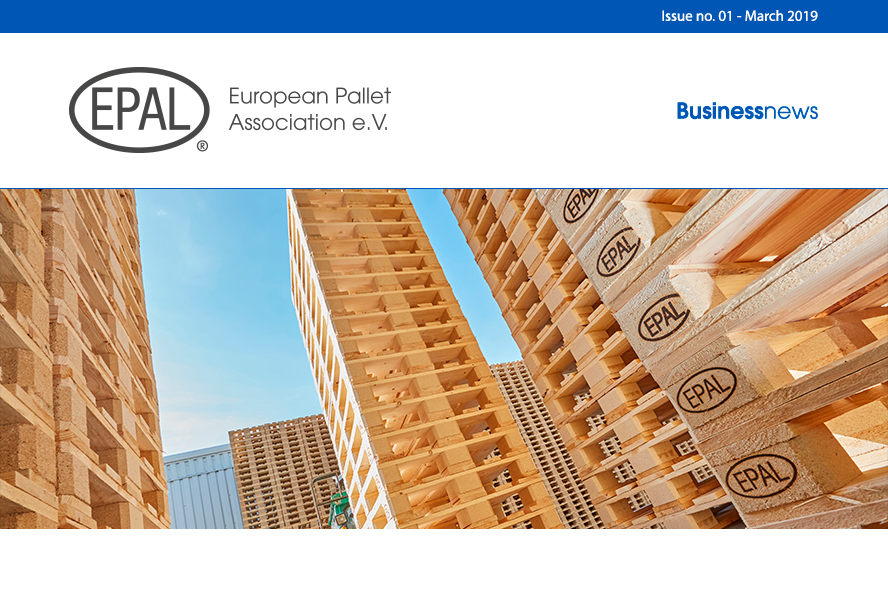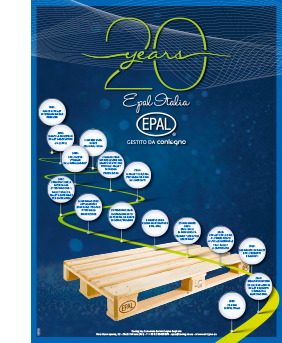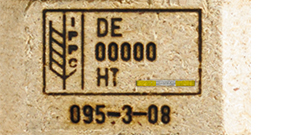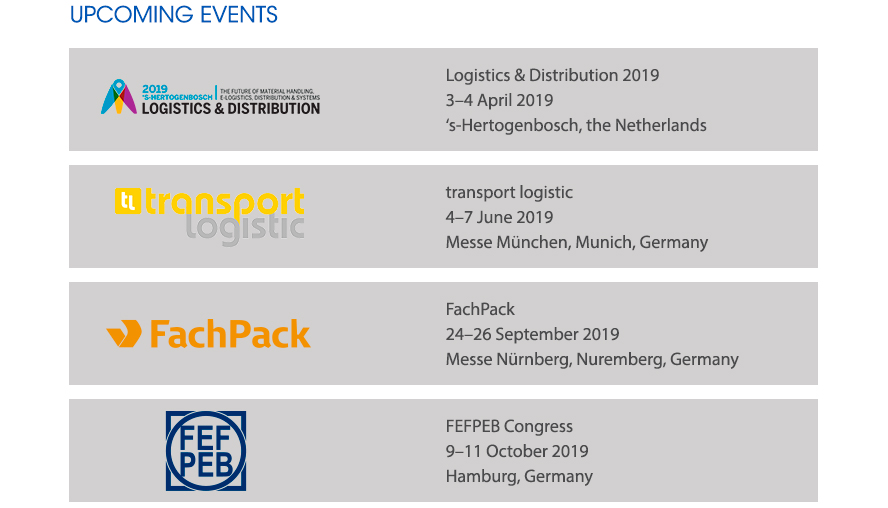 |
 |
Strong result of 121.8 million EPAL load carriers in 2018 For the third consecutive year EPAL ended 2018 with over 100 m EPAL load carriers produced and repaired. “Thanks to the hard work of all licensees, but also due to the solid strong demand in the FMCG sector, in general industry markets and the automotive supply industry, EPAL also had a correspondingly positive development.” Christian Kühnhold, new CEO of EPAL since October last year, is pleased about the stable upward trend of production and repair figures of EPAL load carriers and indicates the direction for the future: “On this basis, we, EPAL want to work hard in all relevant areas and provide the tools, so that the open exchange pool develops even further. This concerns the further development of existing load carriers, e.g. intelligent EPAL pallets or the market launch of new load carriers, such as the independently inspected EPAL CP pallets.” |
 |
20 Years of EPAL Italy On 1st March EPAL Italy celebrated 20 years of presence on the market. |
 |
 |
 |
Brexit and ISPM15 – EPAL users on the safe side It is still not clear how Brexit will be implemented and above all, when. There is considerable uncertainty for industry, retail and in logistics – in the United Kingdom itself, and also in the whole EU. The British Department for Environment, Food and Rural Affairs (DEFRA) has advised that if the United Kingdom leaves the EU without a deal, all wooden packaging, including pallets, cases, crates, boxes, cable drums and reels, that moves between the UK and the EU, must comply with the strict requirements of the International Standard for Phytosanitary Measures No 15 (ISPM15) and may be subject to official inspection. This means that all wooden packaging and pallets will be checked for ISPM15 at the borders of the EU and the UK. This could cause difficulties for users of pallets in closed pools, as their load carriers, which mostly only move within the EU’s borders, are not ISPM15-treated as a rule. And it will continue to be a problem beyond Brexit because there are not enough drying chambers in the UK to quickly close the gap between treated and untreated pallets. The solution is to use EPAL pallets because they are always ISPM15 treated. In EPAL’s portfolio, alongside the Euro pallet and others, is the EPAL 3 pallet (1,000 x 1,200mm) which corresponds to the dimensions of wooden pallets used in the UK. Users of EPAL pallets are best prepared for Brexit. |
 |
EPAL active on social media Many EPAL National Committees and their boards, managing directors and employees are active on social media on behalf of EPAL. Have a look around, follow, like, comment, post and retweet; we look forward to your feedback. |
 |
 |
Kind regards, |
 |
 |
European Pallet Association e.V.
andrea.engels@epal-pallets.org
|
|